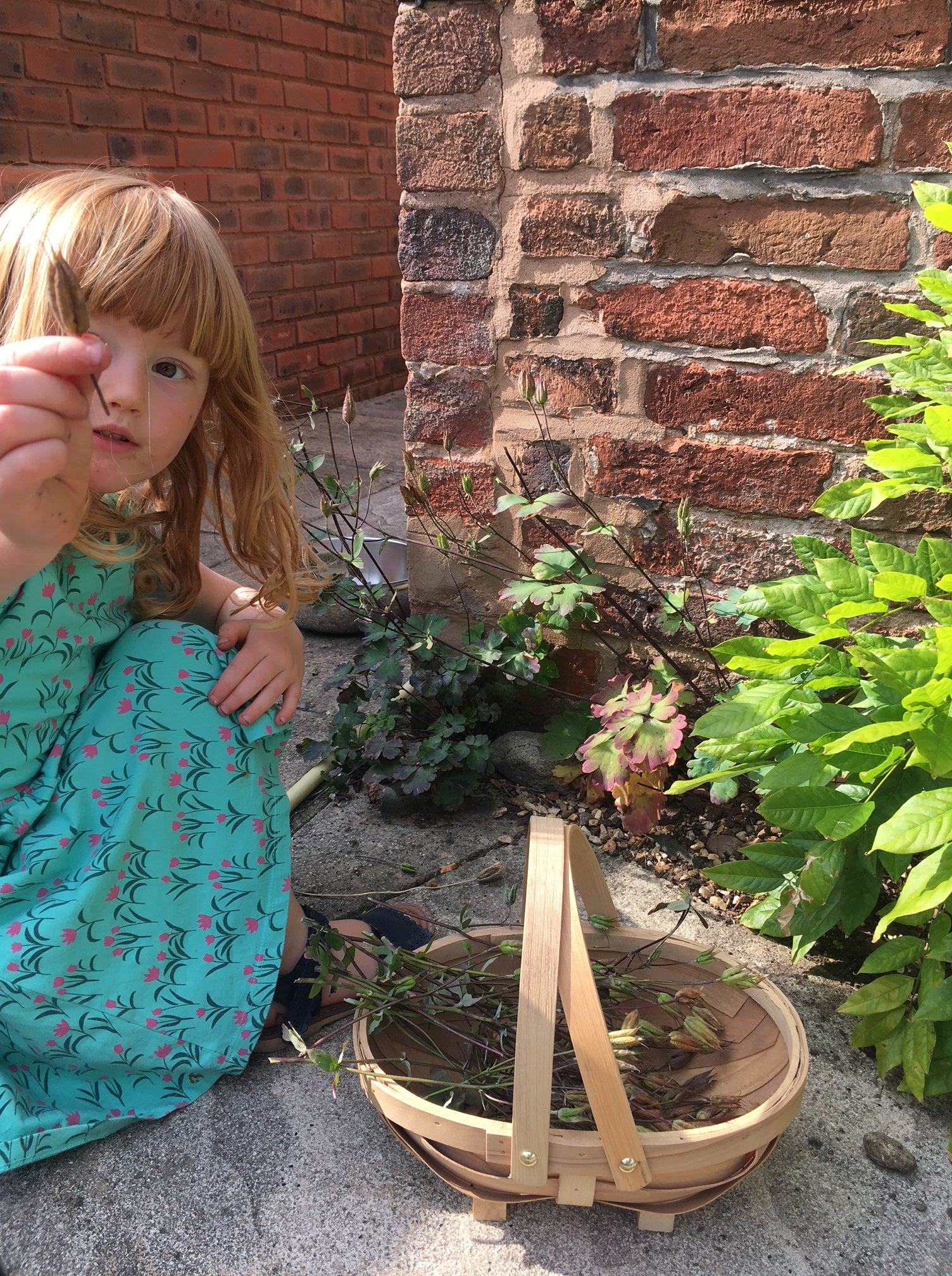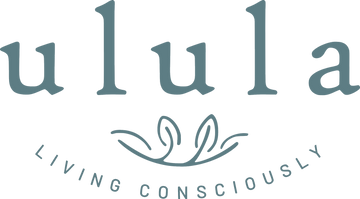Growing for Good #UlulaGrows - seed saving in July
At Ulula we support living lightly on the planet and working with nature to encourage sustainability. In this modern world, we know this can only be achieved if it is cost effective. Seed saving does just this: it promotes self-sufficiency, saves you money, and encourages greater biodiversity of plants species.
Collecting Aquilegia seeds is an easy way to start the practice of seed saving. If you already have these in your garden you may have noticed how they freely multiply. Aquilegias are very easy to grow and make lovely cut flowers. The more you have in your garden, the more you can also enjoy in your home.

Collecting the seeds can be done through July when the seed heads become dry and brown.

Children love to be involved with picking the seed heads and listening to them rattle. Use a paper bag or tin, hold over each seed head and tap until all the seeds land inside.

Once completely dry, store the seeds in labeled paper envelopes. Sow the seeds indoors in pots during early spring next year, and outdoors in April.
Seed collecting is an old process. Over thousands of years, farmers and gardeners have created a rich plant heritage by saving, exchanging and re-using seeds. Over the last century this process has been in decline, with many native and heritage plants species being replaced by commercial varieties.

Whatever we can do to revitalise the practice of seed saving in our gardens carries with it many benefits. Seed saving brings us closer to the health and nutritional benefits of working with the natural environment, saving us money and educating our children. At the same time, it helps contribute to the world's collective food security and reduces the risk of pests, disease and climate change.
Further information: Millenium Seed Bank Partnership (Royal Botanic Gardens, Kew), Native Seed / SEARCH (NS/S), ASEED Europe, Irish Seed Savers Association (ISAA), Navdanya, The Australian Plantbank, Seed Savers Exchange (SSE), Seedsave.org, Slow Food International, Svalbard Global Seed Vault, USC Canada, Vavilov Research Institute (VRI)


